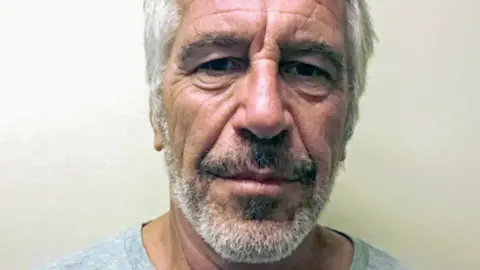A recent ruling from a U.S. judge has ignited controversy and discussion regarding the investigation into Jeffrey Epstein, a disgraced financier and convicted sex offender. Judge Robin Rosenberg determined that the grand jury documents related to Epstein’s case will remain sealed, denying calls for their release, which many, including members of the Trump administration, desire amidst ongoing public interest and political pressure. This significant judicial decision resulted from an effort to unseal material from a 2006 investigation in Florida, during which Epstein was charged with soliciting minors.
The backdrop of this ruling takes center stage as allegations emerge tying Donald Trump to the Epstein case. According to reports from the Wall Street Journal, Trump’s name is among a lengthy list that includes individuals referenced in documents pertaining to the investigation. In response to the journalistic revelations, a spokesperson from the White House labeled them as part of a “fake news” narrative perpetuated by opposing political factions and what they refer to as the liberal media. Furthermore, Trump has faced increased scrutiny from supporters urging him to advocate for greater transparency regarding the allegations surrounding Epstein and the related documents.
As the scrutiny mounted, Trump instructed Attorney General Pam Bondi to pursue the release of all grand jury materials associated with the Epstein case, triggering legal requests in both Florida and New York to facilitate this process. However, in her 12-page ruling, Judge Rosenberg concluded that any potential release of these transcripts could violate grand jury secrecy laws set forth by the federal appeals court responsible for Florida. She stated unequivocally that her “hands are tied” concerning the release of such documents, despite government claims that extensive public interest warranted their unveiling.
Judge Rosenberg’s ruling hinged on the premise that the arguments put forth by the government for the unsealing of documents did not satisfy the criteria for exceptional circumstances needed for such a move. The suggested documents are tied to the initial 2006 investigation of Epstein, which ultimately allowed him to plead guilty to lesser charges while avoiding more severe consequences at the time.
In a broader context, the legal implications and societal reactions to the Epstein case continue to unfold. Amidst Judge Rosenberg’s ruling, discussions on transferring the issue to New York remain in limbo. There, two judges are separately evaluating whether additional transcripts stemming from a 2019 sex-trafficking investigation, following Epstein’s subsequent arrest, should be unsealed. Judge Rosenberg also mandated that a new legal case be initiated, allowing lawyers to present further arguments regarding the release of the grand jury transcripts predating Epstein’s death in jail while awaiting sex-trafficking charges.
While the Epstein case retains focus, ties to Trump have demonstrated a fracturing within political circles, particularly among his staunch supporters. As revelations surfaced suggesting that the Department of Justice found no substantial “client list” that could implicate high-profile associates of Epstein, frustrations erupted among some of Trump’s most loyal supporters. They have called for Pam Bondi to step down from her position after she failed to deliver anticipated documentation, despite prior claims indicating the existence of such files.
The political ramifications extend beyond just individual accountability. Democratic representatives view the discord among Republicans as an opportunity to critique the Trump administration on its claims of transparency and eagerness to prosecute Epstein’s associates. Recent activities in Congress, including the premature closure of sessions and the stalling of votes aimed at unearthing Epstein’s records, underscore the contentious nature of this unfolding saga. The confluence of legal and political dynamics surrounding Epstein’s case continues to carry significant implications for U.S. society while igniting debate over issues of power, accountability, and justice.












